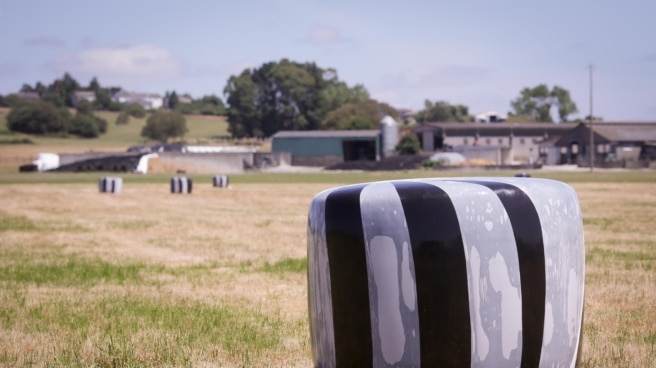

Wheat harvesting in the parish of Calvo, in Abadin, Lugo, Galicia (Spain)
European Commission decision on whether to extend or not glyphosate, the most commonly used herbicide in the world and Europe, is imminent. Glyphosate is currently approved in the European Union until December 15, 2023. Although there is one month left until the expiration date, the Commission will still have to vote this Thursday, November 16, on whether to extend the extension for 10 years or ban the use of this active substance for weed control.
The lack of a majority required to pre-approve or reject the European Commission’s proposal has left glyphosate in the latter scenario: in the event that it does not receive sufficient support or rejection for its resolution, it will be up to the Commission to decide whether to extend the herbicide’s legality and application period.
From the Alliance for Sustainable Agriculture (ALAS), which includes farmers’ organizations ASAJA, COAG and UPA, agri-food cooperatives in Spain, the Spanish Federation of Associations of Producers and Exporters of Fruits, Vegetables, Flowers and Live Plants (FEPEX). and the Spanish Association for Conservation Agriculture of Living Soils, AEAC.SV, argue that the use of glyphosate is vital in the context of inflation such as the current one, as “it contributes to increased agricultural productivity and allows safe and sustainable products to be delivered to market.” homes without unduly increasing production costs.”
Glyphosate controversy
Glyphosate is commonly applied before crop planting to control weeds and thus promote better crop growth by eliminating competing plants. According to the Commission, “this eliminates or minimizes the need for arable machinery, thereby reducing soil erosion and carbon dioxide emissions.”
In recent years, glyphosate has been carefully assessed by Member States, the European Chemicals Agency (ECHA) and the European Food Safety Authority (EFSA).
“The debate and science about the effects of glyphosate have shown clear weaknesses and failures. There were very harmful practices, such as studies published with funding from agrochemical companies, and a lot of ambiguity in general,” says Lucia Argüelles, researcher at the Oberta University of Catalunya (UOC), Laboratory of Urban Transformation and Global Change (TURBA Lab) of the Interdisciplinary Internet Institute ( IN3).
According to Argüelles, an expert on agri-food systems, agencies that regulate glyphosate “seem to be fascinated by this confusion, they think it’s justified when it’s logical to think that dumping tons of chemicals on the fields where we grow our plant-killing food is having an impact.” .
Europe’s two largest economies, France and Germany, abstained from the latest vote, “their position is very comfortable because they say, ‘I don’t vote at all and let Brussels decide,’ so they have no consequences.” at the national level,” indicate the ASAJA office in Brussels.
One of the hypotheses being considered by one of the stakeholders present in Brussels is that the European Commission, “to satisfy those Member States that have abstained so far,” proposes on Thursday the 16th a proposal to extend the deadline by 8 years. “We will have to wait to see this proposal because it is possible that they will adapt the approach to achieve greater acceptance. Another option is for the Commission to understand that, since both ECHA and EFSA support the measure, there is no need to change any parameters. What matters is that the extension will be approved, whether for 15 or 10 years, with or without partner support.
If the “Twenty-Seven” do not reach an agreement on the substance of the differences, the decision on the extension will be made by the European Commission itself, most likely on Thursday. “The Commission would like member states to not cower and take a stand, but the countries that are holding back are doing so because they believe it is a sensitive issue and they are afraid that at national level it will lead to political wear and tear,” – they say at the ASAJA office in Brussels.
After rigorous scientific research, EFSA has determined that glyphosate is safe when used as intended. “Scientific criteria are the best and only guarantee for the development of sustainable and safe agri-food production,” says ASAJA, which in turn believes that glyphosate contributes to the EU’s sustainable development goals to combat climate change by enabling farmers to adopt regenerative practices agriculture, such as conservation agriculture, which sequesters carbon in soil, helps maintain and enhance biodiversity in agricultural ecosystems, and improves water quality.
Source: El Independiente